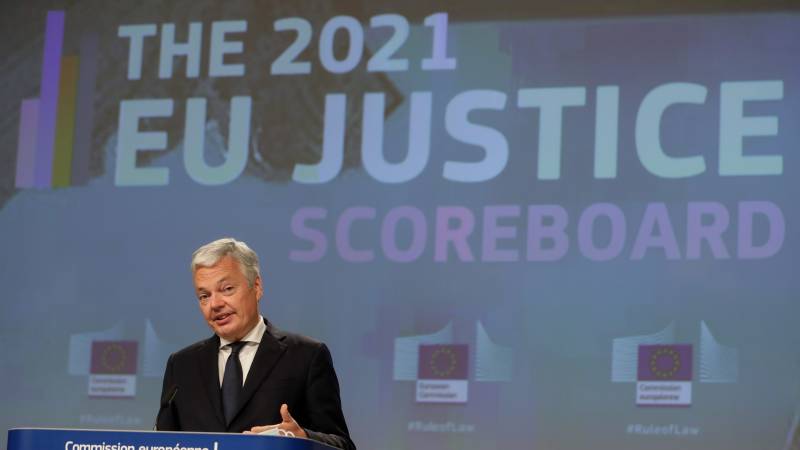Poland must improve the independence of the disciplinary chamber for judges within three weeks. If Poland does not act, the commission will go to court to impose fines on the country. This is what European Commissioner Didier Reynders (Justice) wrote today in a letter to the Polish government.
The disciplinary chamber of the Polish Supreme Court is controversial. The Polish government decides which judges are in it. New judges have been appointed to the various courts and lower courts who support the ruling PiS. According to the Commission, the independence and impartiality of the Disciplinary Chamber is at stake.
Last week, the European Court of Justice ruled that the Disciplinary Chamber as it currently operates is inconsistent with European law. Poland now has three weeks to do something about it.
European Commissioner Vera Jourova (Transparency and Values) stresses that European legislation is binding. “We don’t live in Europe on demand. European laws take precedence over national laws.” It also appears to refer to a ruling by the Polish Constitutional Court. It ruled last week that it had nothing to say to the European Court on internal affairs and that the Polish Disciplinary Chamber could continue to do its work.
Rule of Law Report
Today, the European Commission delivered another slap to the wrists of Hungary and Poland. The situation for independent judges, among others, has deteriorated again this year in those countries. The Commission concludes this in a report on the rule of law in all member states of Europe.
The Commission annually studies, among other things, freedom of the press, the fight against corruption and the independence of the judiciary in European countries. It has sometimes been compared to the rule of law APK. While the Commission sees improvement overall, this is not the case for Hungary and Poland. The European Union has been concerned for years that the two countries are weakening their rule of law.
corruption
The situation in Hungary is not much better. For example, Hungary will do little to combat high-level corruption. Freedom of the press is also threatened. For example, it is still difficult for independent media and journalists, and according to the commission, there is intimidation.
Other countries have also previously been criticized for corruption or limiting press freedom, such as Bulgaria and Slovenia. For example, the Commission is concerned about the Slovenian news agency STA, whose support was abruptly stopped this year.
The criticism in the report has no direct consequences for countries. But the report’s conclusions could eventually be used by the commission to demand monetary fines. In addition, since last January, the Commission has finally been able to stop the support if countries do not respect the rule of law.

Zombie specialist. Friendly twitter guru. Internet buff. Organizer. Coffee trailblazer. Lifelong problem solver. Certified travel enthusiast. Alcohol geek.

